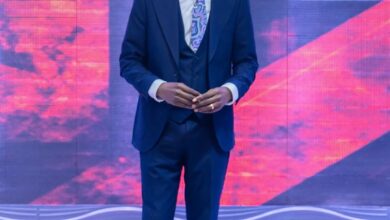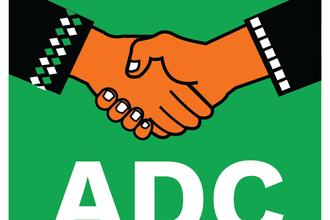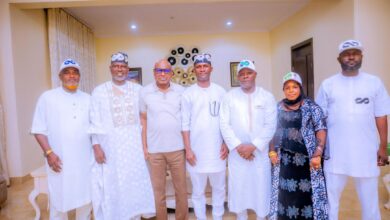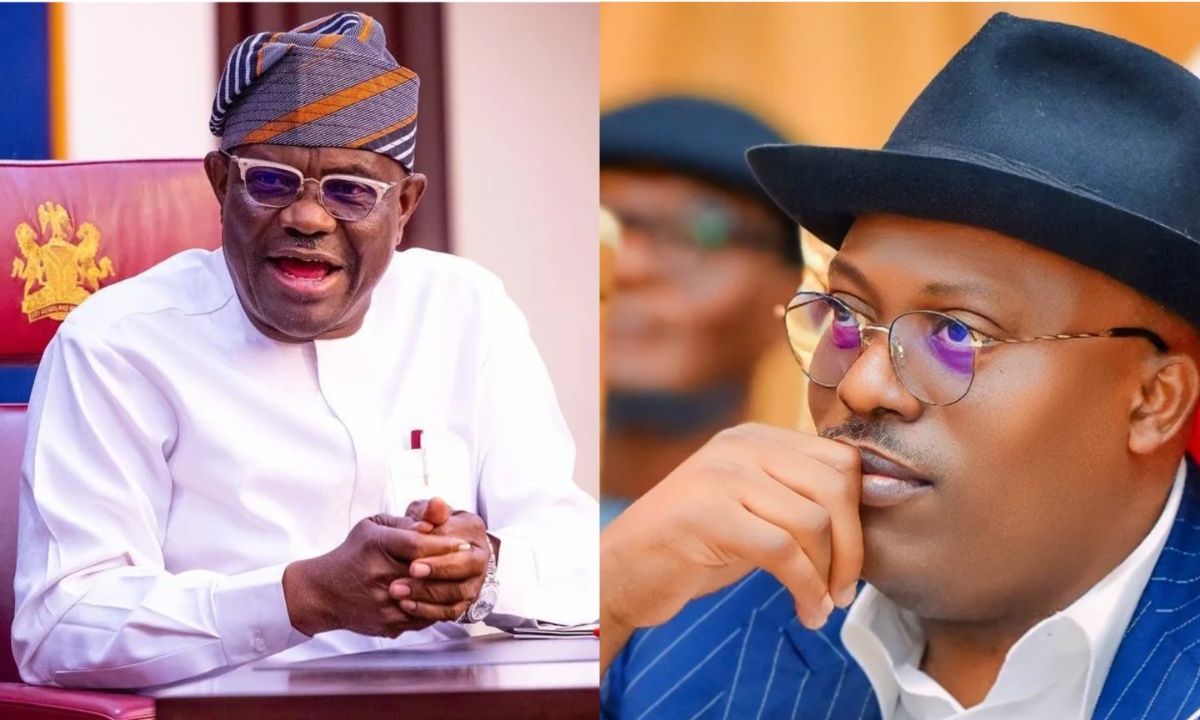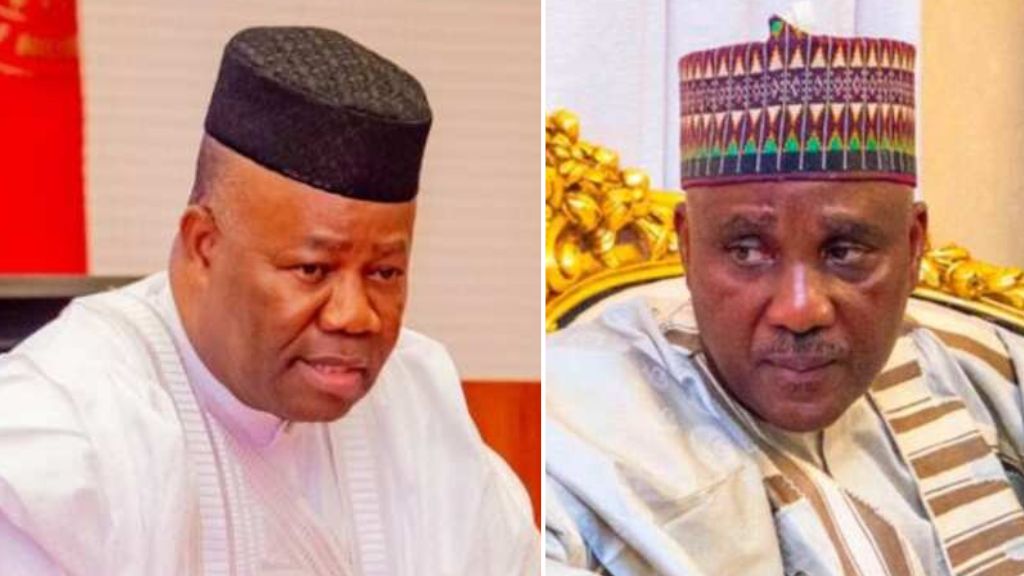
On Tuesday, Senate President Godswill Akpabio and House Speaker Tajudeen Abbas issued a warning against killing Nigerians based on religious or political disagreements.
They made the call during the National Peace Committee’s ‘High-Level Discourse on Religion & Democracy’ session in Abuja.
General Abdulsalami Abubakar, a former Head of State, chairs the NPC, which aims to promote peace and national unity.
Addressing the audience, Akpabio, who was represented by former Edo Governor Adams Oshimohole, emphasized that a country with a large population like Nigeria should not be perceived as still suffering with religious prejudice.
He stated, “As we assemble here, we recognize that religion has the potential to be a powerful force for good. It has the potential to bring our varied populations together while also fostering understanding and respect. We must accept our differences while celebrating our common humanity.
“Each of us has a fundamental right to freely worship, and it is our collective responsibility to defend that freedom by ensuring that no one is marginalized or persecuted for his or her beliefs. But we must face the tough realities. Too frequently, religion has been used as a tool for division and strife.
“Violence and bigotry pose serious threats to our democratic norms and the principles that hold our society together. We cannot disregard the suffering caused by religious disputes around the world. Mahatma Gandhi once observed, “An eye for an eye only makes the whole world blind.”
Abbas voiced his views when he stated that one of the most serious problems to Nigeria’s democracy is the politicization of religion.
The Speaker, who was represented by the Majority Leader of the 10th House of Representatives, Julius Ihonvbere, also acknowledged that religion continues to play a significant role in Nigerian politics.
“As a varied nation, our country is rich in cultures and religions, primarily Islam and Christianity, as well as indigenous beliefs. These differences create both possibilities and challenges for our democratic processes. Religion has long played an important role in establishing our society values and conventions.
“However, it has also been a cause of disagreement and strife. We must tackle the darker aspects of religion influence in our democracy. Political leaders exploit religious beliefs to obtain electoral support. These realities confront us with a huge challenge, which we must carefully navigate.
“In recent years, we’ve seen how religious attitudes can impact political affiliations in election results. Religion and politics frequently complicate governance and can cause divisiveness among our citizens. It is critical that we recognize these dynamics as we work toward a more inclusive democracy,” he said.
Bishop Mathew Kukah, Archbishop of Sokoto Diocese, stated in his address that the country requires a moral foundation on which to build in order to combat societal problems caused by religious conflicts.
He believes that killing a fellow human being in the name of religion is morally immoral.
The preacher mentioned the case of Deborah Yakubu, a 200-level female student at Shehu Shagari College of Education in Sokoto, who was lynched and set ablaze by a mob over a blasphemy allegation, as a reference point.
He stated, “In the name of democracy and religion, Nigerians are dying every day. So something must be wrong. One of the military’s legacies over the previous three decades has been the abolition of the role of intellect. General Babangida accused academics of teaching subjects for which they were not compensated.
Read Also: Timaya Shares Reasons for Staying Unmarried Amid Career Triumphs
“Therefore, assisting ordinary Nigerians in thinking became a felony. We have not yet recovered from that legacy. As a result, we find that this political space is populated by a diverse range of individuals. How is it possible for someone to kill another person on the grounds that ‘you have purportedly offended against my religion.’
“People are getting killed. It occurred in Sokoto in the case of Deborah. Not long later, it happened to another Muslim. And then people started asking me, “So, it’s not just you Christians?” It’s the same twisted view of religion. The fact that Muslims are also affected does not improve the situation.”
Kukah, on the other hand, emphasized the importance of charting a path to help religious leaders grasp their responsibilities to construct a moral compass around politicians in order for them to properly deliver on their promises.
He believes that simple tasks such as providing electricity, good roads, and drinking water do not require prayer.
Gautier Mignot, Ambassador-Designate of the European Union to Nigeria and ECOWAS, emphasized that the EU will continue to promote global peace.
Mignot also observed that Article 10 of the EU Charter on Fundamental Rights guaranteed freedom of thought, conscience, and religion.

